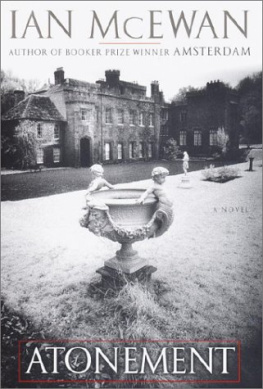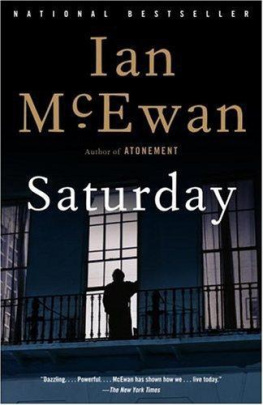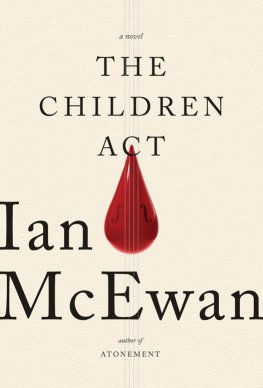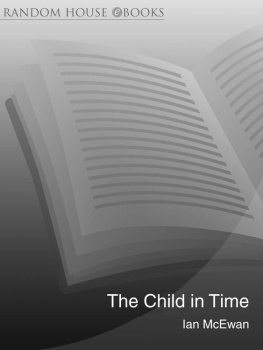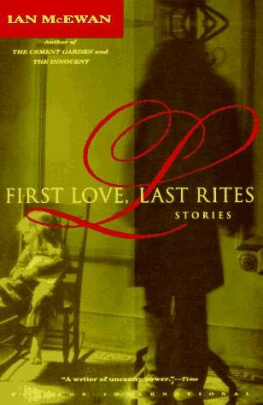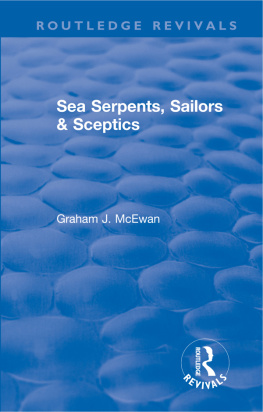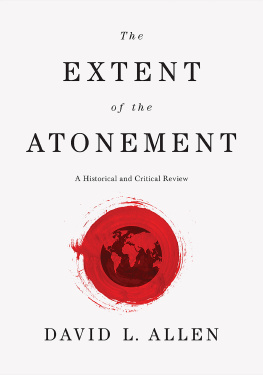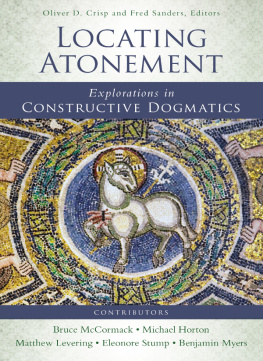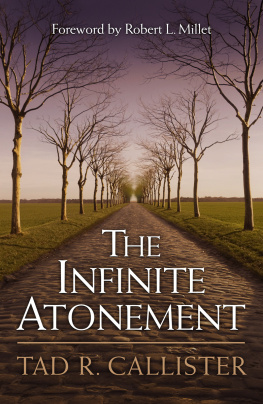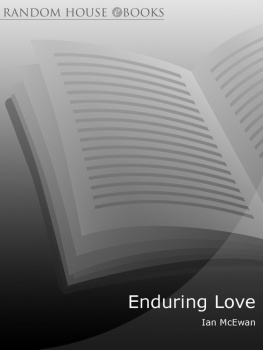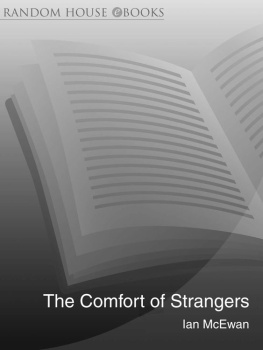Ian McEwan - Atonement
Here you can read online Ian McEwan - Atonement full text of the book (entire story) in english for free. Download pdf and epub, get meaning, cover and reviews about this ebook. year: 2002, publisher: Nan A. Talese, genre: Non-fiction. Description of the work, (preface) as well as reviews are available. Best literature library LitArk.com created for fans of good reading and offers a wide selection of genres:
Romance novel
Science fiction
Adventure
Detective
Science
History
Home and family
Prose
Art
Politics
Computer
Non-fiction
Religion
Business
Children
Humor
Choose a favorite category and find really read worthwhile books. Enjoy immersion in the world of imagination, feel the emotions of the characters or learn something new for yourself, make an fascinating discovery.
- Book:Atonement
- Author:
- Publisher:Nan A. Talese
- Genre:
- Year:2002
- Rating:4 / 5
- Favourites:Add to favourites
- Your mark:
- 80
- 1
- 2
- 3
- 4
- 5
Atonement: summary, description and annotation
We offer to read an annotation, description, summary or preface (depends on what the author of the book "Atonement" wrote himself). If you haven't found the necessary information about the book — write in the comments, we will try to find it.
Atonement — read online for free the complete book (whole text) full work
Below is the text of the book, divided by pages. System saving the place of the last page read, allows you to conveniently read the book "Atonement" online for free, without having to search again every time where you left off. Put a bookmark, and you can go to the page where you finished reading at any time.
Font size:
Interval:
Bookmark:
Ian McEwan
Atonement
2001
On the hottest day of the summer of 1934, thirteen-year-old Briony Tallis sees her sister Cecilia strip off her clothes and plunge into the fountain in the garden of their country house. Watching her is Robbie Turner, her childhood friend who, like Cecilia, has recently come down from Cambridge. By the end of that day, the lives of all three will have been changed for ever. Robbie and Cecilia will have crossed a boundary they had not even imagined at its start, and will have become victims of the younger girls imagination. Briony will have witnessed mysteries, and committed a crime for which she will spend the rest of her life trying to atone.
T HE PLAYfor which Briony had designed the posters, programs and tickets, constructed the sales booth out of a folding screen tipped on its side, and lined the collection box in red crpe paperwas written by her in a two-day tempest of composition, causing her to miss a breakfast and a lunch. When the preparations were complete, she had nothing to do but contemplate her finished draft and wait for the appearance of her cousins from the distant north. There would be time for only one day of rehearsal before her brother arrived. At some moments chilling, at others desperately sad, the play told a tale of the heart whose message, conveyed in a rhyming prologue, was that love which did not build a foundation on good sense was doomed. The reckless passion of the heroine, Arabella, for a wicked foreign count is punished by ill fortune when she contracts cholera during an impetuous dash toward a seaside town with her intended. Deserted by him and nearly everybody else, bed-bound in a garret, she discovers in herself a sense of humor. Fortune presents her a second chance in the form of an impoverished doctorin fact, a prince in disguise who has elected to work among the needy. Healed by him, Arabella chooses judiciously this time, and is rewarded by reconciliation with her family and a wedding with the medical prince on a windy sunlit day in spring.
Mrs. Tallis read the seven pages of The Trials of Arabella in her bedroom, at her dressing table, with the authors arm around her shoulder the whole while. Briony studied her mothers face for every trace of shifting emotion, and Emily Tallis obliged with looks of alarm, snickers of glee and, at the end, grateful smiles and wise, affirming nods. She took her daughter in her arms, onto her lapah, that hot smooth little body she remembered from its infancy, and still not gone from her, not quite yetand said that the play was stupendous, and agreed instantly, murmuring into the tight whorl of the girls ear, that this word could be quoted on the poster which was to be on an easel in the entrance hall by the ticket booth.
Briony was hardly to know it then, but this was the projects highest point of fulfillment. Nothing came near it for satisfaction, all else was dreams and frustration. There were moments in the summer dusk after her light was out, when she burrowed in the delicious gloom of her canopy bed, and made her heart thud with luminous, yearning fantasies, little playlets in themselves, every one of which featured Leon. In one, his big, good-natured face buckled in grief as Arabella sank in loneliness and despair. In another, there he was, cocktail in hand at some fashionable city watering hole, overheard boasting to a group of friends: Yes, my younger sister, Briony Tallis the writer, you must surely have heard of her. In a third, he punched the air in exultation as the final curtain fell, although there was no curtain, there was no possibility of a curtain. Her play was not for her cousins, it was for her brother, to celebrate his return, provoke his admiration and guide him away from his careless succession of girlfriends, toward the right form of wife, the one who would persuade him to return to the countryside, the one who would sweetly request Brionys services as a bridesmaid.
She was one of those children possessed by a desire to have the world just so. Whereas her big sisters room was a stew of unclosed books, unfolded clothes, unmade bed, unemptied ashtrays, Brionys was a shrine to her controlling demon: the model farm spread across a deep window ledge consisted of the usual animals, but all facing one waytoward their owneras if about to break into song, and even the farmyard hens were neatly corralled. In fact, Brionys was the only tidy upstairs room in the house. Her straight-backed dolls in their many-roomed mansion appeared to be under strict instructions not to touch the walls; the various thumb-sized figures to be found standing about her dressing tablecowboys, deep-sea divers, humanoid micesuggested by their even ranks and spacing a citizens army awaiting orders.
A taste for the miniature was one aspect of an orderly spirit. Another was a passion for secrets: in a prized varnished cabinet, a secret drawer was opened by pushing against the grain of a cleverly turned dovetail joint, and here she kept a diary locked by a clasp, and a notebook written in a code of her own invention. In a toy safe opened by six secret numbers she stored letters and postcards. An old tin petty cash box was hidden under a removable floorboard beneath her bed. In the box were treasures that dated back four years, to her ninth birthday when she began collecting: a mutant double acorn, fools gold, a rainmaking spell bought at a funfair, a squirrels skull as light as a leaf.
But hidden drawers, lockable diaries and cryptographic systems could not conceal from Briony the simple truth: she had no secrets. Her wish for a harmonious, organized world denied her the reckless possibilities of wrongdoing. Mayhem and destruction were too chaotic for her tastes, and she did not have it in her to be cruel. Her effective status as an only child, as well as the relative isolation of the Tallis house, kept her, at least during the long summer holidays, from girlish intrigues with friends. Nothing in her life was sufficiently interesting or shameful to merit hiding; no one knew about the squirrels skull beneath her bed, but no one wanted to know. None of this was particularly an affliction; or rather, it appeared so only in retrospect, once a solution had been found.
At the age of eleven she wrote her first storya foolish affair, imitative of half a dozen folktales and lacking, she realized later, that vital knowingness about the ways of the world which compels a readers respect. But this first clumsy attempt showed her that the imagination itself was a source of secrets: once she had begun a story, no one could be told. Pretending in words was too tentative, too vulnerable, too embarrassing to let anyone know. Even writing out the she said s, the and then s, made her wince, and she felt foolish, appearing to know about the emotions of an imaginary being. Self-exposure was inevitable the moment she described a characters weakness; the reader was bound to speculate that she was describing herself. What other authority could she have? Only when a story was finished, all fates resolved and the whole matter sealed off at both ends so it resembled, at least in this one respect, every other finished story in the world, could she feel immune, and ready to punch holes in the margins, bind the chapters with pieces of string, paint or draw the cover, and take the finished work to show to her mother, or her father, when he was home.
Her efforts received encouragement. In fact, they were welcomed as the Tallises began to understand that the baby of the family possessed a strange mind and a facility with words. The long afternoons she spent browsing through dictionary and thesaurus made for constructions that were inept, but hauntingly so: the coins a villain concealed in his pocket were esoteric, a hoodlum caught stealing a car wept in shameless auto-exculpation, the heroine on her thoroughbred stallion made a cursory journey through the night, the kings furrowed brow was the hieroglyph of his displeasure.
Next pageFont size:
Interval:
Bookmark:
Similar books «Atonement»
Look at similar books to Atonement. We have selected literature similar in name and meaning in the hope of providing readers with more options to find new, interesting, not yet read works.
Discussion, reviews of the book Atonement and just readers' own opinions. Leave your comments, write what you think about the work, its meaning or the main characters. Specify what exactly you liked and what you didn't like, and why you think so.

